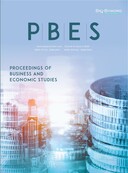Abstract
Fireworks products are energy-containing materials and are hazardous during production, storage, transportation, and use. By analyzing the range of civil aviation ground ambient temperature and civil aviation cabin ambient temperature in storage and ground operation as well as establishing a spontaneous combustion mathematical model for cylindrical fireworks products based on the spontaneous combustion theory, we identified the critical temperature for spontaneous combustion of a single spray and analyzed the thermal safety of fireworks products under the civil aviation ambient temperature by example to provide theoretical support for the feasibility study of transporting fireworks products by civil aviation.
References
State Administration for Market Regulation and Standardization Administration of the People's Republic of China, 2019, List of Default Classification for Transportation of Fireworks, GB/T 38040-2019, viewed February 3, 2023.
Li Y, 2008, Discussion on Analysis and Confirmation Technology of Aircraft Temperature Environment Adaptability. Equipment Environment Engineering, 5(06): 60–64.
Wang L, Feng C, Du Z, 2005, Theory and Experiment of Explosion and Ignition in Limited Space, Beijing Institute of Technology Press, Beijing.
Holman JP, 2022, Heat Transfer, Mechanical Industry Press, Beijing.
Yin Q, 2011, Research on Thermal Safety of Fireworks and Firecrackers, thesis, Beijing Institute of Technology.
Sun Z, 2023, Numerical Solution of Partial Differential Equations, Science Press, Beijing.
Li Q, Mo Z, Qi L, 2022, Numerical Solution of Nonlinear Equations, Science Press, Beijing.
